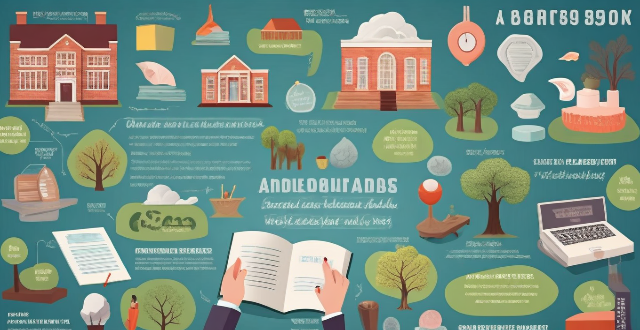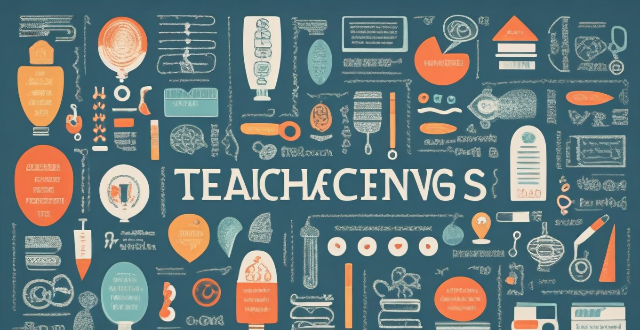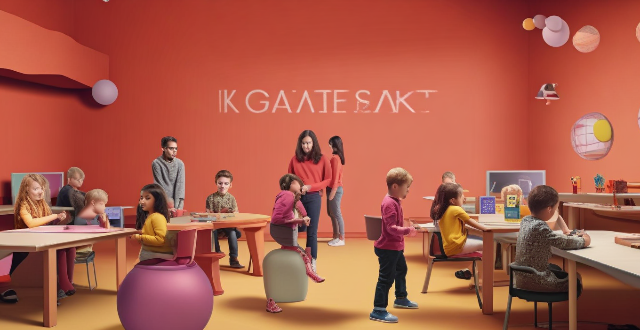Teaching Motivation

What factors contribute to a decrease in motivation to learn and how can they be addressed ?
Motivation to learn can be affected by a variety of factors, including lack of interest or passion, external pressures, emotional state, physical condition, teaching methods, and expectations/feedback. To counteract these influences, strategies such as cultivating interest, managing stress, supporting emotional well-being, addressing physical needs, enhancing teaching techniques, and setting realistic goals are recommended. By understanding and proactively addressing these factors, both educators and learners can work together to enhance motivation, leading to more productive and satisfying learning experiences.

What role does gamification play in improving student motivation and learning outcomes ?
Gamification is a growing trend in education that involves incorporating game-like elements into learning activities. It aims to increase student motivation and engagement, leading to improved learning outcomes. Gamification can enhance student motivation by providing rewards and recognition, immediate feedback, and a fun and engaging experience. It can also improve learning outcomes by enhancing cognitive skills, increasing retention and recall, and promoting collaborative learning. To effectively implement gamification in education, educators should consider clear objectives, adaptive challenge levels, balanced competition and collaboration, regular updates, and integration with other teaching methods.

How can I increase my motivation to study ?
Motivation is crucial for success in education, but staying motivated can be challenging. To increase your motivation to study, set clear goals, create a study plan, find a study group or partner, stay positive, and reward yourself for meeting goals.

What role does motivation play in educational psychology ?
Motivation is crucial in educational psychology as it influences student engagement and academic performance. It can be intrinsic or extrinsic, with students driven by internal factors like curiosity or external factors like rewards. Understanding theories such as goal orientation and self-determination can help educators foster motivation through strategies like setting clear goals and providing autonomy. Ultimately, creating effective learning environments that inspire students requires a deep understanding of motivation and its impact on education.

Can you discuss the impact of personalized learning on innovative teaching methods ?
Personalized learning, an educational approach that tailors instruction to individual students' needs and preferences, has significantly influenced innovative teaching methods. This approach emphasizes a student-centered learning environment, flexible use of technology and space, and data-driven decision making. As a result, teaching methods have evolved to include differentiated instruction, mastery-based assessments, self-directed learning opportunities, and the integration of technology. These changes aim to create a more engaging, effective, and personalized educational experience for each student, fostering deeper understanding and higher retention rates.

What is the relationship between self-efficacy and motivation in learning ?
This article explores the relationship between self-efficacy and motivation in learning. It explains how self-efficacy affects motivation, including choice of activities, level of effort and persistence, and emotional response to setbacks. The article also provides suggestions for enhancing self-efficacy to increase motivation, such as providing opportunities for mastery experiences, modeling successful performance, offering positive feedback and encouragement, and helping students set realistic goals.

What role does intrinsic motivation play in learning and how can I cultivate it ?
Intrinsic motivation is a key factor in enhancing the learning process. It leads to increased engagement, persistence, and deeper understanding of material. To foster this type of motivation, one should focus on promoting autonomy, competence, relatedness, personal interest, and a mastery orientation. Strategies include offering choices, providing clear feedback, building community, connecting to interests, and emphasizing the learning journey over just the outcome.

What role does collaborative learning play in innovative teaching approaches ?
The text discusses the importance of collaborative learning in innovative teaching approaches, emphasizing how it enhances student engagement, promotes critical thinking, develops communication skills, encourages autonomy and self-direction, and fosters teamwork and leadership skills.

How does music influence motivation during physical activity ?
Music has a significant impact on motivation during physical activity. Fast-paced music increases energy levels, slow-paced music promotes relaxation, and enjoyable music enhances mood. Music can also distract from pain and fatigue, and personal preference plays a role in its effectiveness. Incorporating music into workout routines can make exercise more enjoyable and lead to better results.

How can parents encourage and support their children's academic motivation ?
Academic motivation is a crucial factor in a child's educational journey. Here are some tips on how parents can encourage and support their children's academic motivation: 1. Set goals and expectations by discussing interests and strengths, creating a plan, and providing regular feedback. 2. Create a conducive learning environment by providing a quiet study space, minimizing distractions, and encouraging breaks and physical activity. 3. Offer encouragement and praise by acknowledging efforts and achievements, praising hard work and dedication, and celebrating successes. 4. Be involved in their education by attending parent-teacher conferences, showing interest in their studies, and helping with homework when needed. 5. Model good study habits by demonstrating a positive attitude towards learning, practicing time management and organization skills, and showing perseverance and resilience when faced with challenges.

How can teachers effectively integrate multimedia resources into their innovative teaching methods ?
Integrating multimedia resources into teaching methods can greatly enhance the learning experience for students. Teachers should identify learning objectives, choose appropriate tools, create interactive lessons, encourage student participation, integrate technology in assessments, provide access to online resources, and continuously evaluate and update their methods. This approach ensures that teaching remains innovative and engaging for students.

What are the benefits of teaching children about climate change ?
Teaching children about climate change is crucial for their future, empowering them to take action and make a difference. It enhances their awareness, critical thinking skills, environmental stewardship, innovation, preparation for future careers, empathy, responsibility, healthy habits, resilience, and interest in science and technology. This education can lead to informed decision-making, problem-solving abilities, responsible behavior towards the environment, and a sense of global citizenship. By teaching children about climate change, we are preparing them to confront one of the most significant challenges facing our planet.

How can artificial intelligence be integrated into classroom teaching ?
Artificial intelligence (AI) can revolutionize classroom teaching by enhancing student engagement, personalizing learning experiences, and improving educational outcomes. Adaptive learning systems create personalized learning pathways and provide real-time feedback, while intelligent tutoring systems offer individualized coaching and progress tracking. Automated grading and assessment streamline the evaluation process, virtual learning assistants provide round-the-clock support, and data analytics tools inform instructional decisions. AI-powered group projects and peer feedback mechanisms facilitate collaborative learning environments. Integrating AI into classroom teaching has the potential to transform education by creating more engaging, personalized, and efficient learning experiences for all students.

What are the benefits of setting goals for studying and how do they impact motivation ?
The benefits of setting goals for studying include increased clarity and direction, improved motivation through short-term milestones and visual progress tracking, better time management with efficient planning and reduced procrastination, enhanced performance via targeted learning and a feedback loop, and stress reduction due to predictability and a sense of control. These advantages collectively contribute to heightened motivation, both immediately and in the long term, making goal setting an essential strategy for effective and enjoyable learning.

How can teachers help students improve their motivation to learn ?
Teachers can boost student motivation by setting clear goals, creating a positive learning environment, making lessons relevant, providing autonomy, offering support, using varied teaching methods, modeling passion for learning, and addressing barriers to learning.

How can I improve my teaching skills as a fitness instructor ?
This article provides tips on how to improve teaching skills as a fitness instructor. It suggests developing knowledge of fitness and exercise science, enhancing communication skills, creating engaging workouts, and continuously evaluating and improving teaching methods. The article emphasizes the importance of staying up-to-date with current research and best practices, practicing active listening and empathy, designing well-rounded fitness programs, fostering a supportive community within classes, seeking feedback from clients, and reflecting on one's own performance. By following these tips, fitness instructors can provide higher quality service to their clients and achieve better client outcomes.

What are some innovative teaching methods that can enhance student engagement ?
Innovative teaching methods, including Project-BasedInnovative teaching methods, including Project-Basedroom, Gaming and Simulation Gaming and Simulations, Peer Teaching and Tutoring, Technology Integration, and Service Learning, are designed to enhance student engagement by fostering critical thinking, problem-solving, collaboration, and real-world application of knowledge. These approaches aim to make learning more interactive, relevant, and enjoyable for students, ultimately contributing to their academic success and personal growth.

What are the best practices for teaching children about money management and savings ?
Teaching children about money management and savings is an essential life skill that can help them develop good financial habits. Here are some best practices for teaching children about money management: 1. Start early: Even toddlers can understand basic concepts like saving and spending. Use everyday opportunities to talk about money and its value. 2. Lead by example: Children learn by example, so it's important to model good financial habits yourself. Show them how you budget, save, and make decisions about spending. 3. Use allowances wisely: Giving your child an allowance is a great way to teach them about money management. Encourage saving, teach spending, and introduce giving as part of their allowance. 4. Play money games: Board games and online games can be fun and educational at the same time. Some popular ones include Monopoly, The Game of Life, and PiggyBot. 5. Involve them in family finances: Involving your children in family finances can help them understand the real-world implications of money management. Have them help you create a budget, go grocery shopping with you, and talk to them about bills and expenses. Remember to be patient, consistent, and positive when teaching children about money management and savings. With these best practices, your child will develop good financial habits that will serve them well throughout their life.

What are some innovative methods for teaching climate change in schools ?
Innovative Methods for Teaching Climate Change in Schools Climate change is a pressing issue that requires innovative approaches to teaching. Here are some methods that can help engage students and promote critical thinking: 1. Interdisciplinary Learning 2. Project-Based Learning (PBL) 3. Service Learning 4. Technology Integration 5. Inquiry-Based Learning 6. Field Trips and Experiential Learning

What is the impact of sports psychology on an athlete's overall well-being ?
Sports psychology plays a crucial role in enhancing an athlete's overall well-being by addressing various aspects such as mental preparation, motivation, confidence building, stress management, and injury recovery. Mental preparation includes goal setting, visualization, and task focus; motivation involves intrinsic motivation, goal setting, and self-talk; confidence building entails developing a positive mindset, celebrating successes, and learning from mistakes; stress management includes breathing exercises, mindfulness practices, and time management; and injury recovery provides emotional support, coping strategies, and return-to-play planning. By addressing these aspects, sports psychology helps athletes perform at their best while maintaining their mental and physical health.

In what ways do gamification and game-based learning foster innovative teaching environments ?
Gamification and game-based learning foster innovative teaching environments by engaging students with challenges and rewards, promoting collaboration and competition, providing immediate feedback and personalization, and enhancing student motivation and engagement. These methods use elements of games to motivate students and enhance their learning experience, making learning more fun, interactive, and enjoyable. By incorporating these approaches, educators can transform traditional classrooms into dynamic spaces where students actively participate in their own learning journey.

What are some effective strategies for improving study habits and motivation ?
Effective strategies for improving study habits and motivation include setting clear goals, creating a study plan, eliminating distractions, using active learning techniques, staying motivated, seeking help when needed, and practicing self-care. These strategies can lead to academic success.

How do project-based learning and problem-solving activities fit into innovative teaching methodologies ?
Innovative teaching methodologies emphasize project-based learning (PBL) and problem-solving activities to engage students, foster critical thinking, and develop practical skills. PBL involves students in complex, meaningful projects that connect classroom learning with real-world scenarios, promoting deeper understanding, skill development, and motivation. Problem-solving activities challenge students to identify issues and find effective solutions, enhancing their critical thinking, decision-making, and resilience. Integrating PBL and problem-solving into innovative teaching involves identifying key concepts, designing relevant projects, incorporating problem-solving elements, providing resources, facilitating collaboration, scaffolding instruction, reflecting and evaluating, and assessing holistic performance. This approach creates a dynamic learning environment that prepares students for future challenges and fosters a love of lifelong learning.

How can parents implement successful home teaching strategies for their children ?
This article discusses successful home teaching strategies that parents can implement for their children. The key strategies include creating a conducive learning environment, setting clear goals and expectations, encouraging active learning, using positive reinforcement, fostering open communication, and modeling good study habits. These strategies aim to support children's academic growth and help them develop essential life skills.

What are effective home teaching strategies for children with learning disabilities ?
Effective home teaching strategies for children with learning disabilities include identifying the child's learning style, using multisensory approaches, breaking down tasks into smaller steps, using repetition and practice, providing positive reinforcement, and creating a supportive environment. These strategies can help parents help their children overcome challenges and achieve success in their academic endeavors.

How can educational psychology contribute to effective teaching strategies ?
The article discusses how educational psychology can contribute to effective teaching strategies. It emphasizes the importance of understanding student diversity, promoting active learning, building positive relationships, and assessing and addressing learning difficulties. By applying these principles, teachers can create a supportive and engaging learning environment that fosters student growth and success.

How do inquiry-based learning techniques contribute to innovative teaching practices ?
Inquiry-based learning (IBL) is an educational approach that engages students in exploring real-world problems and challenges. It encourages critical thinking, problem-solving, and collaborative learning. IBL techniques contribute to innovative teaching practices by promoting student-centered learning, enhancing critical thinking skills, fostering collaborative learning, developing inquiry skills, integrating technology, and promoting autonomy and self-direction. By embracing IBL, educators can create an innovative learning environment that prepares students for future challenges and successes.

How do home teaching strategies impact a child's academic performance ?
Home teaching strategies refer to the methods and techniques parents use to support their children's learning outside of school. These strategies can have a significant impact on a child's academic performance, as they provide additional opportunities for learning and help reinforce concepts taught in the classroom. In this response, we will explore the various home teaching strategies and how they influence a child's academic success. Parents play a crucial role in encouraging and motivating their children to learn. By showing interest in their child's education and expressing positive expectations, parents can help build their child's confidence and self-esteem. This, in turn, can lead to increased engagement in learning activities and better academic performance. Parents should set clear goals and expectations for their children's academic achievement. This helps children understand the importance of education and provides them with a sense of direction. When parents establish high but realistic expectations, children are more likely to strive for excellence and achieve better results. Creating a supportive learning environment at home is essential for fostering academic success. Parents should ensure that their children have a quiet, well-lit space for studying, as well as access to necessary resources such as books, computers, and educational software. Additionally, parents should establish regular study routines and minimize distractions during designated study times. Reading aloud to children is an effective way to improve their vocabulary, comprehension skills, and overall literacy development. Parents should make reading a daily habit, selecting age-appropriate books that align with their child's interests and reading level. Writing is an essential skill that requires consistent practice to develop. Parents can encourage their children to write by providing them with opportunities to express themselves through journaling, storytelling, or letter writing. Providing feedback on their writing efforts can also help children improve their writing skills over time. Mathematics is a subject that benefits from regular practice and exposure to new concepts. Parents can support their child's mathematical development by providing them with challenging problems and puzzles to solve. This not only helps reinforce math skills learned in school but also promotes critical thinking and problem-solving abilities. Inquiry-based learning involves allowing children to explore topics of interest through hands-on experiences and investigation. Parents can support this type of learning by providing resources such as science kits, nature exploration guides, or access to online resources that allow children to engage in inquiry-based activities. Home teaching strategies have a significant impact on a child's academic performance. By involving themselves in their child's education, setting goals and expectations, and providing a supportive learning environment, parents can help their children achieve academic success. Additionally, employing effective home teaching strategies such as reading aloud, encouraging writing practice, providing mathematical challenges, and promoting inquiry-based learning can further enhance a child's academic development.

What resources are available for parents to teach advanced subjects at home ?
Teaching advanced subjects at home can be a challenging task for parents. Resources such as online courses, textbooks, forums, and personal tutoring can make the process easier and more effective in teaching advanced subjects like math, science, and foreign languages.